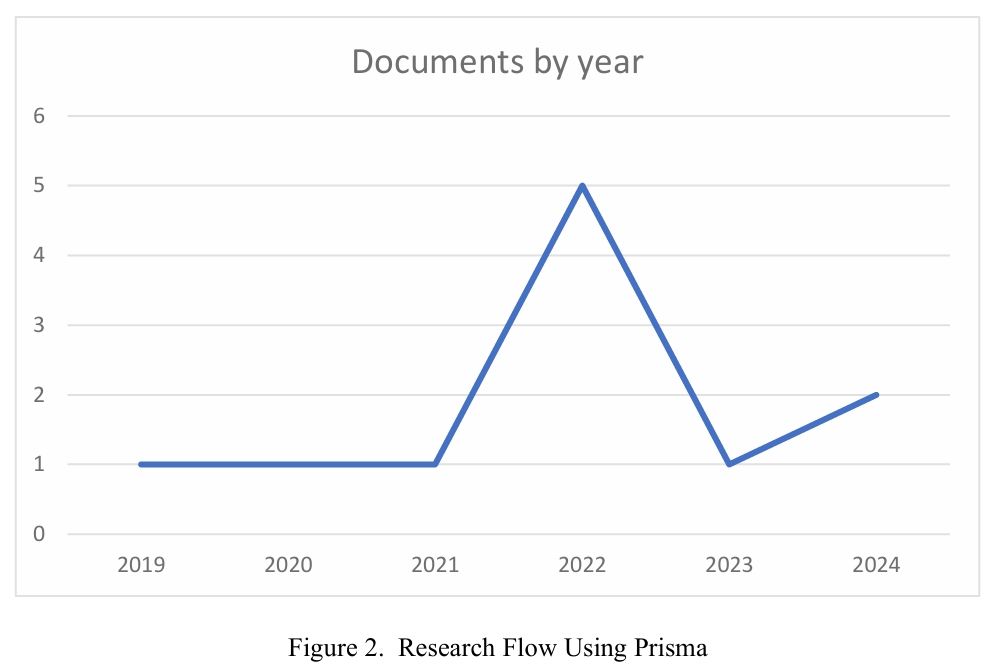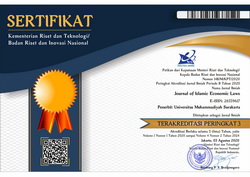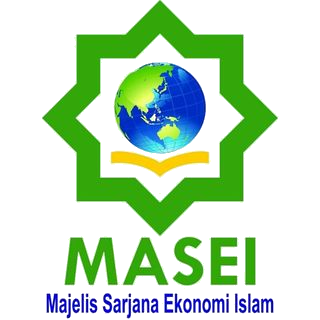Islamic Circular Economy in Business Practice and Islamic Finance: A Systematic Literature Review
DOI:
https://doi.org/10.23917/jisel.v8i02.11697Keywords:
Circular Economy, Business Practice, Finance, Sustainability, Systematic Literature ReviewAbstract
Global environmental crises, including climate change, natural resource degradation, and increasing waste, pose significant challenges to conventional linear economic systems. In response, the circular economy has emerged as an alternative model emphasizing resource reduction, reuse, and recycling. However, scholarly work examining its integration with Islamic values remains fragmented. This study addresses this gap through a systematic literature review of 11 Scopus-indexed publications (2019-2024) conducted according to PRISMA guidelines. The method employed in this research is a literature review, which aims to describe the existing research landscape on the circular economy from an Islamic perspective, drawing on relevant and current academic literature. The analysis reveals two themes in circular economy research from an Islamic perspective: First, the concept of Islamic Circular economy in business practice, such as khalifah fil ardh (stewardship), tawazun (balance), maslahah (public benefit), and the prohibition of israf (waste), demonstrates intrinsic compatibility with circular economy goals. Second, the Islamic finance sector, with its blended financial models, Islamic social finance instruments, and green sukuk, offers viable financing alternatives for circular economy initiatives. The findings provide a foundational mapping for future research to further develop Islamic circular economy models, particularly through empirical validation and practical implementation strategies in both financial and business domains.
Downloads
References
Al-Jayyousi, O., Tok, E., Saniff, S. M., Wan Hasan, W. N., Janahi, N. A., & Yesuf, A. J. (2022). Re-Thinking Sustainable Development within Islamic Worldviews: A Systematic Literature Review. Sustainability (Switzerland), 14(12). https://doi.org/10.3390/su14127300
Alam, A., Tri Ratnasari, R., Latifathul Jannah, I., & El Ashfahany, A. (2023). Development and evaluation of Islamic green financing: A systematic review of green sukuk. Environmental Economics, 14(1), 61–72. https://doi.org/10.21511/ee.14(1).2023.06
Alfaihani, S. (2024). Linking Islamic Moral Economics and Circular Economy: A Pathway to Sustainability. 2024 International Conference on Sustainable Islamic Business and Finance, SIBF 2024, 197–204. https://doi.org/10.1109/SIBF63788.2024.10883876
Alhammadi, S. (2022). Analyzing the Role of Islamic Finance in Kuwait Regarding Sustainable Economic Development in COVID-19 Era. https://doi.org/10.3390/su14020701
Ali, S. N., & Jumat, Z. H. (2021). Islamic Finance and Circular Economy: An Introduction. In Gulf Studies (Vol. 5). https://doi.org/10.1007/978-981-16-6061-0_1
Apriantoro, M. S., Diniyah, D. N., & Rosadi, R. D. P. (2024). Riding the tides of change : A bibliometric expedition on technology-enabled circular economy. Multidisciplinary Reviews, 2023. https://doi.org/10.31893/multirev.2024089
Campra, M., Brescia, V., Jafari-Sadeghi, V., & Calandra, D. (2021). Islamic countries and Maqasid al-Shariah towards the circular economy: The Dubai case study. European Journal of Islamic Finance, 17(April 2021), 1–10. https://doi.org/10.13135/2421-2172/4560
El, A., Qodrat, M., & Ahmed, S. (2025). Relationship of Zakat and Waqf to Poverty and Inequality : Bibliometrics Analysis. International Journal of Islamic Studies, 37(1), 171–187. https://doi.org/10.23917/suhuf.v37i1.9938
Gambardella, C. (2025). Pitfalls of Cold Sustainability Planning. Techne, 3, 11–14. https://doi.org/10.36253/techne-18098
Ghazanfari, A. (2023). An Analysis of Circular Economy Literature at the Macro Level, with a Particular Focus on Energy Markets. Energies. https://doi.org/10.3390/en16041779
Gonçalves, B. de S. M., de Carvalho, F. L., & Fiorini, P. de C. (2022). Circular Economy and Financial Aspects: A Systematic Review of the Literature. Sustainability (Switzerland), 14(5). https://doi.org/10.3390/su14053023
Hanif, F., Athief, N., Rizki, D., & Pratwindya, A. (2021). Performa Bank Wakaf Mikro Selama 2017-2021 : Sebuah Studi Literatur Sistematis ( Systematic Literature Review ). Jurnal Ekonomi Dan Perbankan Syariah. https://doi.org/10.1905/iqtishadia.
Ibrahim, A. J., Al-Ansari, K., & Shirazi, N. S. (2021). The Role of Islamic Finance in Fostering Circular Business Investments in the Case of Qatar’s Tire Industry. Gulf Studies, 5(1), 281–320. https://doi.org/10.1007/978-981-16-6061-0_15
Islam, M. M., Ab Talib, M. S., & Muhamad, N. (2024). Islamic Marketing and Circular Economy to Foster Sustainability of Product Life Cycle Enhancement. Contributions to Management Science, Part F3298(August), 125–141. https://doi.org/10.1007/978-3-031-61778-2_7
Javaid, O. (2022). The Principles of a Circular Economy in the Light of Islamic Values and Beliefs. Journal of Islamic Thought and Civilization, 12(1), 214–230. https://doi.org/10.32350/jitc.121.12
Kakati, B. K. (2023). Sustainability in the study of Gandhian economic philosophy. Area Development and Policy, 8(2), 182–196. https://doi.org/10.1080/23792949.2021.1999170
Karaelmas, D., & Solt, H. B. H. (2025). Evaluation of University Students’ Awareness of Sustainable Development Goals: The Example of Zonguldak Bülent Ecevit University Çaycuma Campus. International Research Journal of Multidisciplinary Scope, 06(03), 1–15. https://doi.org/10.47857/irjms.2025.v06i03.05636
Khan, T. (2019). Reforming Islamic finance for achieving sustainable development goals. Journal of King Abdulaziz University, Islamic Economics, 32(1), 3–21. https://doi.org/10.4197/Islec.32-1.1
Khan, T., & Badjie, F. (2022). Islamic blended finance for circular economy impactful smes to achieve sdgs. Singapore Economic Review, 67(1). https://doi.org/10.1142/S0217590820420060
Khateeb, S. H., Jumat, Z. H., & Khamis, M. S. (2021). Islamic Perspective on Circular Economy. Gulf Studies, 5, 11–25. https://doi.org/10.1007/978-981-16-6061-0_2
Kumar, P., Vinay, H., & Cali, R. (2024). New for Some , Old for Others : Circular Economy Practices in Ancient Time. Circular Economy and Sustainability, 4(2), 815–825. https://doi.org/10.1007/s43615-023-00323-9
Kumar, V., Jeyanthi, S., Sri, S., & Dutt, S. (2024). Integrating Circular Economy Principles in Achieving Net Zero Toward Sustainable Futures : India ’ s Perspective. Materials Circular Economy, 6(1), 1–23. https://doi.org/10.1007/s42824-024-00144-7
Musari, K. (2022). ASEAN toward circular economy and sustainable energy in tackling climate change: Islamic green financing taxonomy for sustainable finance. In Handbook of Research on Building Greener Economics and Adopting Digital Tools in the Era of Climate Change (Issue August 2022). https://doi.org/10.4018/978-1-6684-4610-2.ch011
Musari, K. (2023). The evolution of waste bank in Indonesia: An (Islamic) local wisdom based on circular economy towards a climate-neutral economy. In Perspectives on the Transition Toward Green and Climate Neutral Economies in Asia (Issue July 2023). https://doi.org/10.4018/978-1-6684-8613-9.ch014
Nart, S., & Öztürk, A. (2021). Circular economy from the point of consumption relations: Consumer’s role in maintaining circular process. In Contemporary Studies in Economic and Financial Analysis (Vol. 106). https://doi.org/10.1108/S1569-375920210000106005
Potting, J., Hekkert, M., Worrell, E., & Hanemaaijer, A. (2017). Circular economy: Measuring innovation in the product chain. PBL Netherlands Environmental Assessment Agency, 2544.
Rizos, V., Tuokko, K., & Behrens, A. (2017). The circular economy, a review of definitions, processes and impacts. In Centre for European Policy Studies (Brussels, Belgium).
Tariqullah Khan, T. K. (2019). Reforming Islamic Finance for Achieving Sustainable Development Goals. Journal of King Abdulaziz University Islamic Economics, 32(1), 3–21. https://doi.org/10.4197/Islec.32-1.1
Toponar, O., Shpatakova, O., Kopchak, Y., Klievtsievych, N., & Miniailenko, I. (2024). Integrating the Circular Economy into Business Processes to Reduce Waste and Increase Environmental Sustainability. Grassroots Journal of Natural Resources, 7(2). https://doi.org/10.33002/nr2581.6853.070207
Wang, X., & Ramakrishnan, S. (2022). International and national sustainable developments. In Environmental Sustainability in Building Design and Construction (pp. 25–46). Springer International Publishing. https://doi.org/10.1007/978-3-030-76231-5_2
Yussuf, C. (2022). A Critical Assessment of The Circular Economy Concept in The Light of Maqasid Al Shariah. Journal of Islamic Economics and Finance, 8(2), 291–318. https://doi.org/10.54863/jief.1074828

Downloads
Submitted
Accepted
Published
How to Cite
Issue
Section
License
Copyright (c) 2025 Journal of Islamic Economic Laws

This work is licensed under a Creative Commons Attribution-ShareAlike 4.0 International License.

















